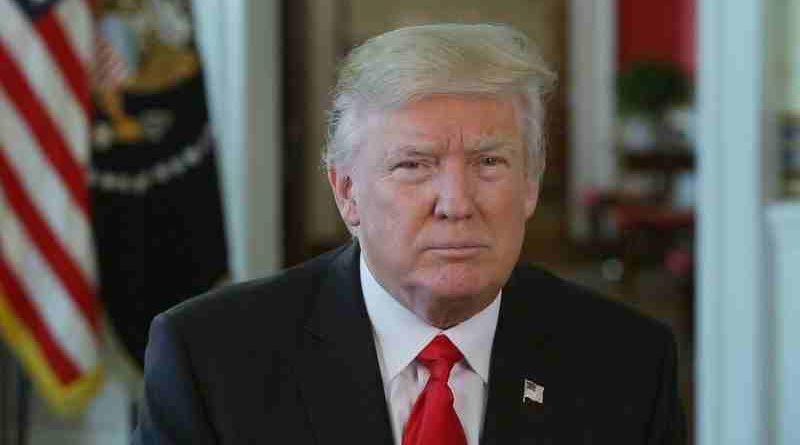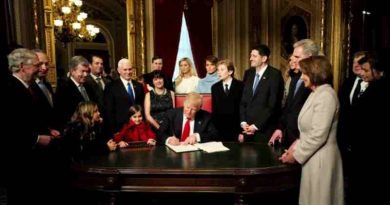Trump Exploits London ‘Terrorist Attack’ to Push Muslim Travel Ban

By Rakesh Raman
While it could be a mere road accident, the local authorities have preferred to call it a terrorist attack when a vehicle struck pedestrians on London Bridge on Saturday. The number of causalities is not yet confirmed.
Condemning the incident, the Mayor of London Sadiq Khan said the Metropolitan Police are responding to the “horrific terrorist attack” at London Bridge and nearby Borough Market where a stabbing incident took place.
“We don’t yet know the full details, but this was a deliberate and cowardly attack on innocent Londoners and visitors to our city enjoying their Saturday night. I condemn it in the strongest possible terms. There is no justification whatsoever for such barbaric acts,” Sadiq Khan said in a statement.
[ Also Read: Criminal Activities of DPS Housing Society MC Members ]
Sadiq Khan also informed that the London Bridge Station has been closed and authorities are asking people to avoid the area.
Meanwhile, the U.S. President Donald Trump has decided to exploit the incident to support his travel ban on Muslims even though the nature of the incident is not yet known. Trump has assumed that Muslims are behind the London incident.
Whatever the United States can do to help out in London and the U. K., we will be there – WE ARE WITH YOU. GOD BLESS!
— Donald J. Trump (@realDonaldTrump) June 3, 2017
“We need to be smart, vigilant and tough. We need the courts to give us back our rights. We need the travel ban as an extra level of safety,” Trump tweeted.
We need to be smart, vigilant and tough. We need the courts to give us back our rights. We need the Travel Ban as an extra level of safety!
— Donald J. Trump (@realDonaldTrump) June 3, 2017
After facing a severe opposition from people and American courts for his executive order signed in January, President Trump had issued in March a revised order restricting entry of people from six Muslim countries: Iran, Libya, Somalia, Sudan, Syria, and Yemen.
The earlier Muslim ban order issued on January 27 had “suspended for 90 days the entry of certain aliens from seven countries: Iran, Iraq, Libya, Somalia, Sudan, Syria, and Yemen.”
According to that order, these countries had already been identified as presenting heightened concerns about terrorism and travel to the United States.
Later, U.S. District Judge James Robart had issued a nationwide temporary restraining order blocking Trump’s Muslim ban order. Trump also had fired a top federal government lawyer Sally Yates when she opposed Trump’s order.
A number of United Nations (UN) human rights and refugee welfare agencies had expressed their anguish over Trump’s arbitrary decision to ban the entry of people from certain Muslim countries.
The agencies – including UNHCR, the UN Refugee Agency, and IOM, the International Organization for Migration – hoped that the U.S. will continue its strong leadership role and long tradition of protecting those who are fleeing conflict and persecution.
By Rakesh Raman, who is a government’s National award-winning journalist and runs free school for deserving children under his NGO – RMN Foundation.






